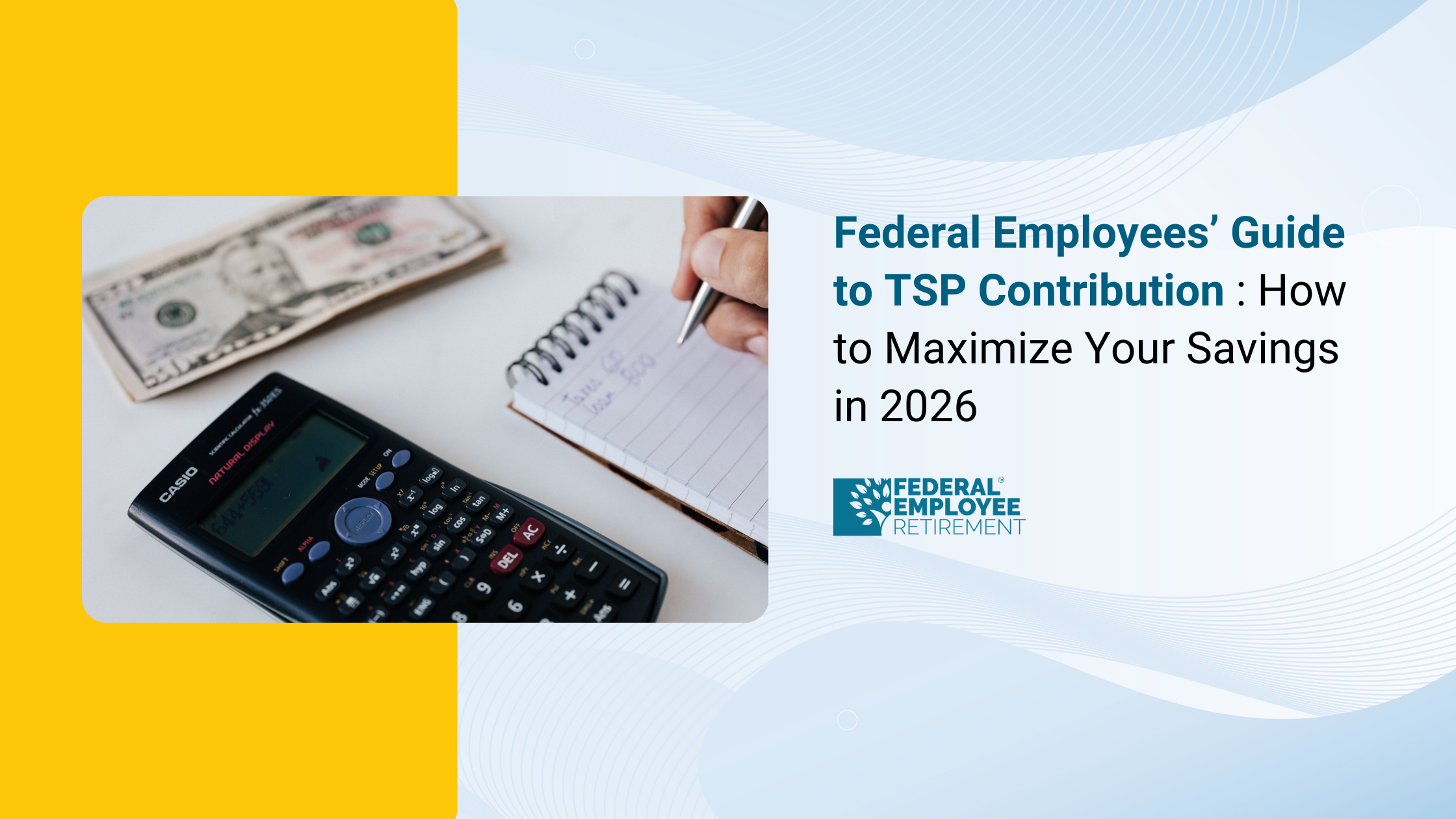You’re not alone; 4,359 federal employees booked their free review.

What is the FERS Supplement or SRS Supplement? An Overview of Federal Retirement Benefits
The recognition of the FERS benefit is good for federal employees. The system provides a special benefit for employees retiring before they qualify to receive Social Security, thereby bridging the income gap. A comprehensive system made up of all these things, including telework policies and Supplemental annuities, offers various kinds of support for employees working at the Federal level.
Meanwhile in this article we will explore the FERS Supplement, relate pertinent legislation to telework by federal employees and explain about various types of survivor or supplemental annuities available to Federal employees or their representatives.
What Is the FERS Supplement?
The FERS Supplement, also called the Special Retirement Supplement (SRS), is targeted to specific employees that separate from service in advance of turning 62 years old and being able to claim Social Security benefits. The purpose of the FERS Supplement is to help federal annuitants under 62 remain financially whole —not fall into poverty—until Social Security benefits take up its place.
Who is Eligible for the FERS Supplement?
Not every federal employee qualifies for the FERS Supplement. To be eligible, a federal employee must meet the following criteria:
- Retire under the Minimum Retirement Age (MRA) with 30 years of service, or age 60 with 20 years of service.
- Employees in special categories, such as law enforcement officers, firefighters, and air traffic controllers, who retire at younger ages are also eligible.
- Those who retire under voluntary early retirement are typically eligible as well.
If a federal employee retires before reaching age 62 but has met the service requirements, they will receive the FERS Supplement until they become eligible for Social Security.
How is the FERS Supplement Calculated?
Amount and Calculation of FERS Supplement — The amount is calculated on the basis of all years that he has under his belt as a federal civil servant (not by adding military time into it) until age 62 if you let him live out another twenty seven thousand days or so. The formula is as follows:
FERS Supplement = ( FERS Years of Service / Total Years of Service ) × Estimated Social Security Benefit at Age 62
These benefits would be reduced for any spousal or survivor annuity, because the supplement is not payable to a surviving spouse. For example: if an employee worked 20 years under FERS and qualification estimated benefit of $1,200 per month at age 62 due to total Social Security-covered work history of thirty years; their FERS Supplement would amounting approximately two-thirds ($800 monthly) in this case
The FERS Supplement is subject to an earnings test that mirrors the way Social Security benefits are affected by outside earned income. Similarly, if a retiree earns over a set amount of wages or self employment their FERS Supplement may be reduced.
Why the FERS Annuity Supplement Matters in Retirement Planning
As you can see, retirement planning is complicated and one part of your FERS benefit package that makes this a little easier for our seasoned citizens who retire before Social Security eligibility age.
It is supposed to fill the income void so that those who retire early can have a steady stream of money coming in until their Social Security benefits start up. It is a benefit that cannot be ignored because many early retirees will end up getting hit with it, and therefore need to know how to account for this in their retirement plan.
Federal Telework Legislation and Policies
In recent years telecommuting has been an increasingly important aspect of federal employment. Employees who can work remotely are able to be flexible and they help guarantee that the organization will continue to function even if there's an emergency.
Key Telework Legislation
The cornerstone of telework policy for federal employees is the Telework Enhancement Act of 2010. This law established the basic framework for telework eligibility and implementation within federal agencies. It requires agencies to:
- Determine eligibility: Agencies must identify which positions are eligible for telework.
- Implement telework policies: Each agency must develop a telework policy outlining how employees can participate in remote work.
- Provide training: Employees and managers must undergo telework training to ensure productivity and accountability while working remotely.
During the COVID-19 pandemic, telework policies were expanded significantly, with many federal employees transitioning to full-time remote work. While the pandemic highlighted the effectiveness of telework, the long-term future of these policies will likely depend on the ability of agencies to balance remote work with the need for in-office presence.
FERS Annuity Survivor Benefits
The FERS Survivor Annuity provides a vital financial lifeline to spouses and beneficiaries of deceased federal employees. This benefit ensures that the surviving spouse receives a portion of the deceased employee’s retirement annuity, helping them maintain financial stability.
Types of Survivor Annuity Benefits
- Full Survivor Annuity: some text
- The surviving spouse receives 50% of the retiree's unreduced annuity.
- The retiree’s annuity is reduced by 10% to fund this benefit.
- Partial Survivor Annuity: some text
- The surviving spouse receives 25% of the retiree’s unreduced annuity.
- The retiree’s annuity is reduced by 5% to fund this benefit.
- Children’s Survivor Benefits: some text
- If the retiree has children under the age of 18, or 22 if still in school, they may also be eligible for survivor benefits.
The survivor annuity is crucial for spouses who depend on the retiree’s income for living expenses and retirement planning. Employees must elect to provide this benefit upon retirement, and if they choose not to, spousal consent is required.
And If in any case you are finding difficulty to get these benefits, you can connect with us we are Federal Pension Advisors, helping federal employess in retirement planning, financial planning, 403 b plan etc.
Additionally you can checkout our federal calculators such as, TSP calculators, Paycheck calculator, or FERS calculator.
FERS Supplemental Annuity
In addition to the FERS Supplement, there is a FERS Supplemental Annuity offered in exceptional cases. This benefit is primarily available to federal employees who retire before age 62 and don't qualify for the FERS Supplement because of special circumstances.
FERS Supplemental Annuity is calculated similarly to the FERS Supplement, though it applies to a narrower category of retirees, such as certain disability retirees. Like FERS Supplement, this benefit plugs the gap between early retirement and eligibility for Social Security.
Comparing FERS Benefits: Supplement vs Survivor Annuities
Below is a summary of the key differences between the FERS Supplement and FERS Survivor Annuities:
Conclusion
The FERS Annuity Supplement is vital to government employees (CSRS or FERS) who retire before reaching 62, it provides them with a financial cushion until they can draw benefits from Social Security. The FERS Survivor and Supplemental Annuities offer just as indispensable protection for the retirees or their families (as a death benefit), giving continuity in retirement. Are you sure about "Any bank"? As well as that a retiree's death will not mean financial hardship tomorrow.
Federal employees also have more flexible work arrangements and at the same time the government's mission is supported in this way. This modernization of the federal job helps make their lives in retirement more stable Residential non-investment benefits.
At first glance, the list may seem daunting, But that same list is also what sustains a federal government dispatcher as she juggles work, kids (or parents), and untold hours on the road every week in search of affordable housing until Sunday night when one endless drive home actually begins whatever may lie ahead for her and those she loves. I Hope you find it useful.
Armed with this knowledge, Federal employees will be able to decide with confidence on their retirement options and have peace of mind in knowing that both themselves and their families shall live securely for years to come.


Get Updated
Subscribe to our weekly updates for the latest on retirement planning, federal benefits, exclusive webinars, and more!
Download Federal Retirement: Step-by-step Checklist
This comprehensive guide will help you understand your federal benefits, optimize your savings, and plan for a comfortable future.



.png)








